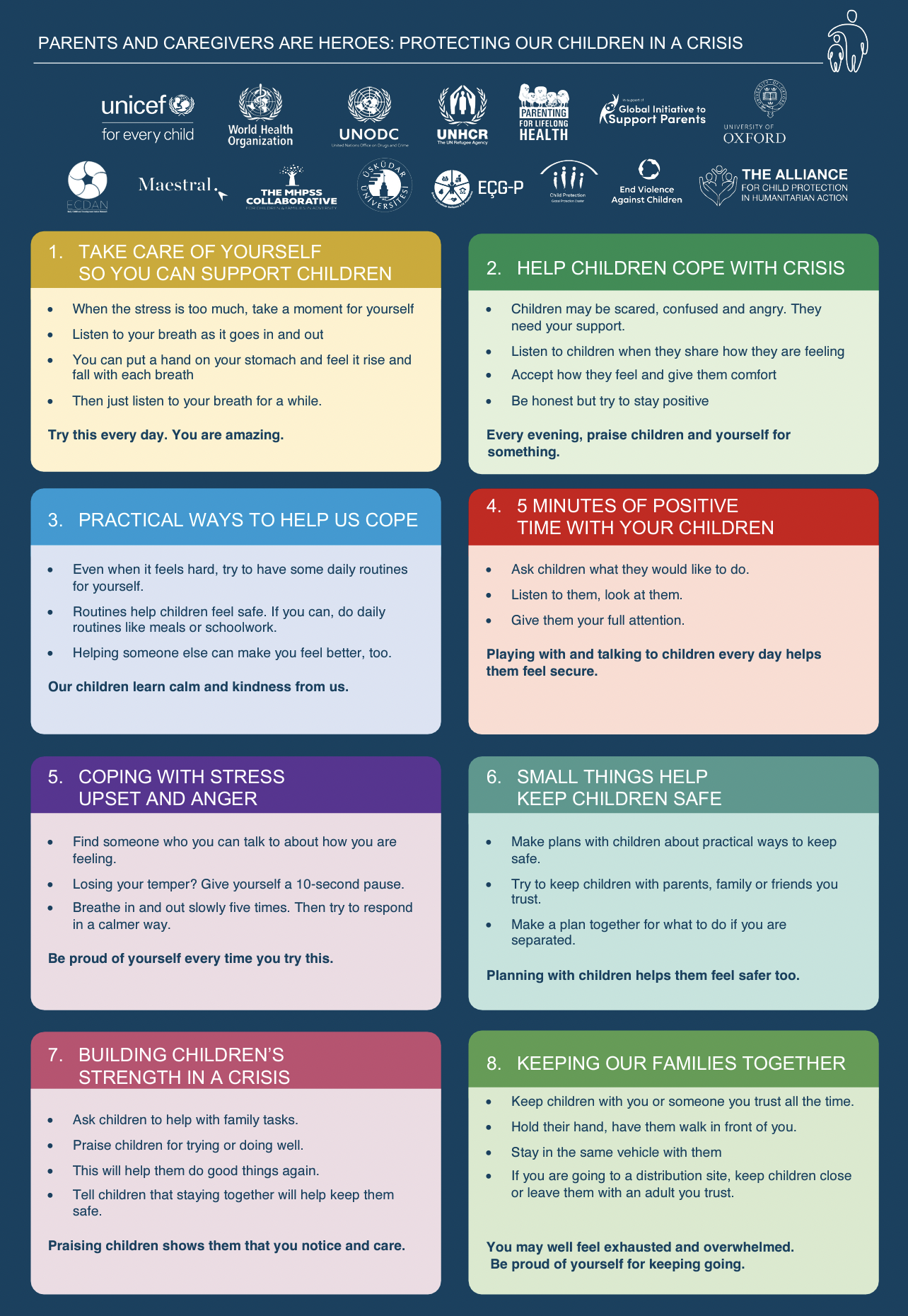
Go back to Family Skills page | View and Download Overview of Tools
Family skills remain essential tools supporting the healthy and safe development of children in line with the UNODC WHO International Standards on Drug Use Prevention. In the context of crisis, caregiving skills become even more prominent given the sudden rise of new vulnerabilities, coupled with the fact that in most instances family remains the only functioning social institution supporting the healthy and safe development of children. Nevertheless, caring for children during conflict contexts can be extremely challenging when caregivers face so many competing responsibilities. Warm, positive parenting can help buffer children from psychological harm during conflict and displacement.
Through its field implementation experience in diverse contexts and through partnerships with other UN agencies and academic institutions, UNODC developed a series of packages suitable for supporting caregiving in such contexts. These vary from leaflets to booklets to more structured interventions depending on the circumstances of the crisis context. To better articulate such essential tools, UNODC has developed a series of supportive videos and audio recordings (in various languages) to articulate the content of such tools, providing caregivers with tips and advice on how they might best support their children during conflict and displacement.
Click the arrow to read more
A. Positive parent-child relationship and good parental mental health:
B. Parental support and monitoring are:
Click the arrow to read more
The Model
UNODC aimed to avail low-cost interventions to meet the urgent needs of children affected by war and displacement. Researchers at the University of Manchester in parallel were exploring means to strengthen parenting skills amongst the same target population.
UNODC and the University of Manchester joined efforts in developing and implementing four levels of parenting skills initiatives in different contexts and at different levels of need and intensity of interaction. Such programmes were designed to be:
Click the arrow to learn more about these resources
Caring for children during conflict contexts can be extremely challenging when caregivers face so many competing responsibilities. However, warm, positive parenting can help buffer children from psychological harm during conflict and displacement. These materials were developed for primary caregivers of children, providing them with tips and advice on how they might best support their children in any crisis, conflict, or displacement context. Each material has been translated into various languages, and more translations are added periodically.
The leaflets are available in many languages in written form and also as audio recordings. The leaflet was developed by Professor Rachel Calam, Dr Aala El-Khani and Dr Kim Cartwright at The University of Manchester, UK. They have now been made available as audio recordings with support from the United Nations Office on Drugs and Crime Prevention Treatment and Rehabilitation Section (UNODC).




These videos are audio recordings (in various languages) of a leaflet developed for primary caregivers of children, providing them with tips and advice on how they might best support their children during conflict and displacement.